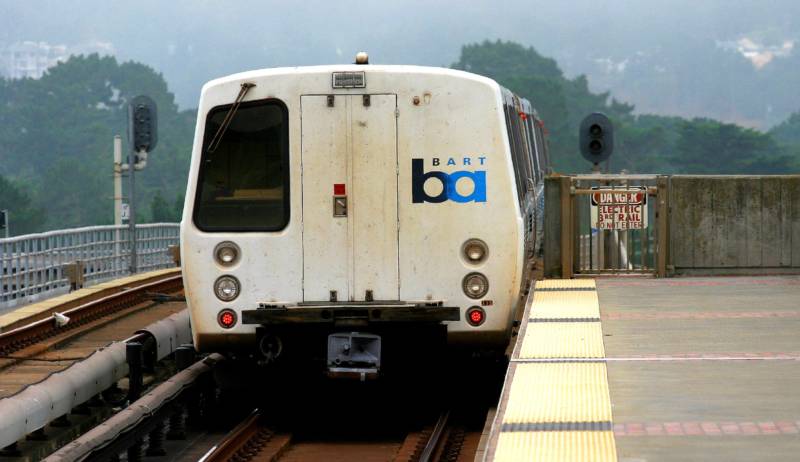The bond measure also includes a provision for an independent annual audit of how the bond proceeds are spent.
The measure, which will appear on ballots in Alameda, Contra Costa and San Francisco counties, will require two-thirds approval to pass. Homeowners in those counties would see an increase in property tax bills of between $35 and $55 a year for the 40-year life of the bond program, depending on the assessed valuation (not market price) of their properties.
Proponents of the bond say it's key to modernizing a system that has become crucial to travel throughout the Bay Area and has seen dramatic ridership increases in recent years. The system now provides about 435,000 rides every weekday -- that's the average of daily fare-gate exits -- up about 35 percent since 2010.
Anyone who rides BART has come to feel the system is strained to or beyond its limits. That's palpable in jampacked rush-hour trains and in the system's frequent breakdowns. Those service problems were on high-profile display in March, when a still-mysterious electrical glitch along the tracks between North Concord and Pittsburgh/Bay Point in Contra Costa County damaged dozens of cars and briefly triggered a systemwide crisis.
Stuart Cohen, executive director of transit activist group TransForm, said at Thursday's board meeting his group supports the bond measure because it believes it will increase the system's reliability.
"We all know that when BART stops, the Bay Area stops as well, and we've seen it a bit too much" in recent years, Cohen said.
"We're squished like sardines," he added, "and we're just about to get to that place that Washington, D.C.'s Metro is, where they're now having frequent meltdowns." (Electrical problems in the D.C.-area system prompted a one-day emergency shutdown in March.)
Not everyone is enamored of the prospect of giving BART the authority to borrow $3.5 billion for its infrastructure needs.
Contra Costa County state Sen. Steve Glazer is an outspoken critic of BART's financial management, and said earlier this year he would oppose the bond unless the agency takes steps to show it can be trusted. For instance, he has suggested that BART undertake a salary survey to compare its pay scale with those of other transit agencies. He has also insisted the agency restrain pay increases to its non-union managers.
Glazer had no comment on the BART board vote, spokesman Steve Harmon said Thursday.
